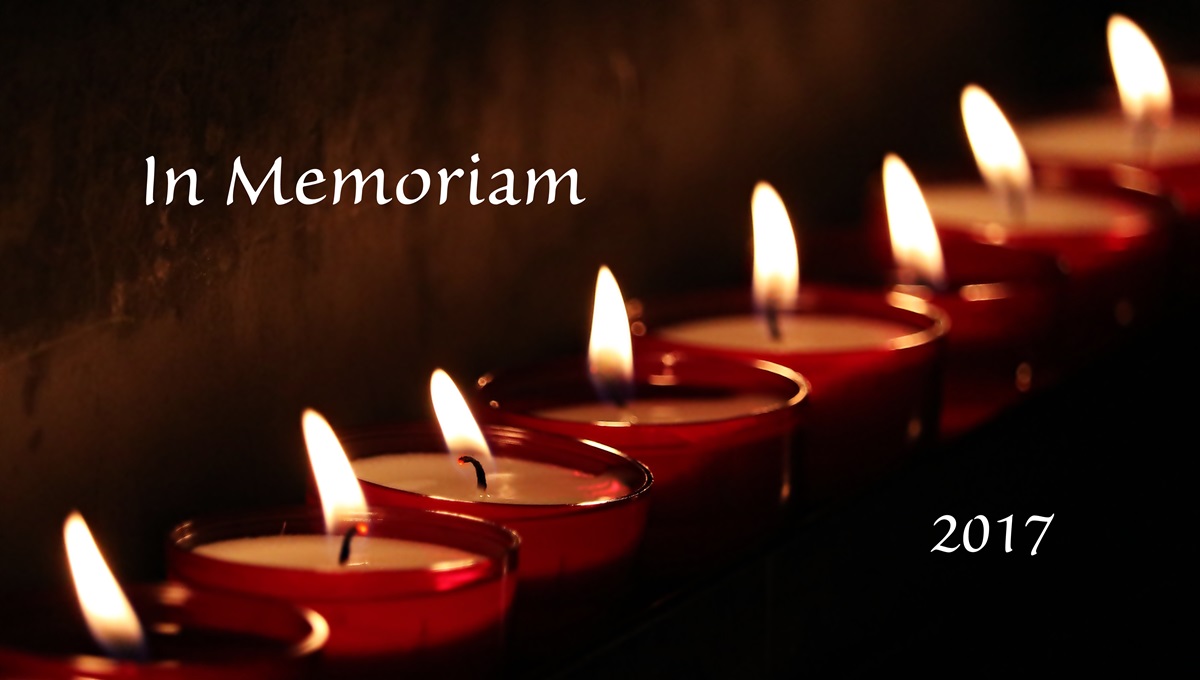United Methodists this past year marked the passing of a scholar of world religions, a champion of deacons and a bishop who braved an attempt on his life.
Here are 27 remembrances, listed in order of date of death.
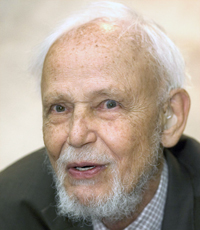
The Rev. Huston Smith. Photo by
Mike DuBose, UMNS.
The Rev. Huston Smith
The Rev. Huston Smith, a renowned scholar of world religions and the son of Methodist missionaries, died at age 97 on Dec. 30, 2016, in Berkeley, California. His 1958 book “The Religions of Man,” later shortened and titled “The World’s Religions,” became a standard textbook in college religion courses.
Smith, who graduated from United Methodist-related Central Methodist University in Fayette, Missouri, was ordained a Methodist elder. He soon found he preferred teaching to preaching and discovered a passion for studying religious experiences around the world.
He helped introduce the Dalai Lama to Americans, prayed in Arabic toward Mecca and demonstrated the lotus position on public television. He also joined the U.S. civil rights movement in the 1960s. Throughout these experiences, he remained committed to Methodism — though sometimes critical of church teachings.
“He was such an enormous influence for good, for openness towards The Other,” said the Rev. Walt Westbrook, pastor of Remington United Methodist Church in Virginia, and a longtime reader of Smith’s work.
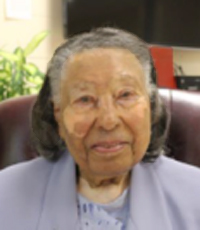
Ruth Thomas. Photo courtesy of
the Black Staff Association.
Ruth Thomas
Ruth Naomi Wilson Thomas, who broke racial barriers alongside her husband the late Bishop James Samuel Thomas, died Jan. 17 in Atlanta. She was 95.
In 1964, her husband made history when he was elected bishop and assigned to the previously all-white Iowa Conference. In 1976, he was appointed to the East Ohio Conference, where he served until retirement in 1988. As the wife and partner of the bishop, Ruth Thomas balanced speaking engagements, conferences, world travel, spiritual retreats and event hosting with motherhood. She also helped other bishops’ spouses adapt to their new responsibilities.
“Mrs. Thomas was the epitome of graciousness and kindness,” said Cynthia Palmer, the wife of West Ohio Conference Bishop Gregory Palmer and a friend of Thomas’.
“Her mentorship provided direction and a sense of calm to many of the new bishops' spouses. Her ability to always see the joy of the journey was a testimony to us all.”
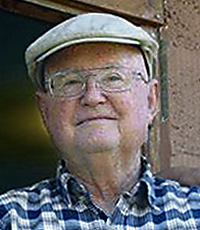
Ed Ririe. Photo courtesy of the Oklahoma Conference.
Ed Ririe
Over the past 24 years, Ed Ririe served on 27 United Methodist volunteer mission teams. The lifelong United Methodist was on a team helping flood survivors in southern Oklahoma when he died suddenly Jan. 24. He was 80.
Ririe, an engineer by profession, and his wife, Alice, joined Oak Park United Methodist Church in Bartlesville, Oklahoma, in the 1960s. A craft idea for the church Christmas bazaar inspired the couple to open a candle factory now known internationally as Keepsake Candles. He liked to say it was a church project that “got out of hand.”
“My sister, Katherine, and I learned a lot from him,” his daughter Karen Distefano, the Oklahoma Conference’s secretary of Global Ministries, told the conference’s Contact. “We learned compassion for people in need, regardless of skin color, place of origin, religion or race. We were strengthened in our faith.”
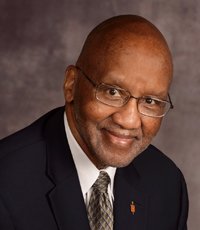
Bishop Felton E. May. Photo
courtesy of the Council of Bishops.
Bishop Felton E. May
Bishop Felton E. May often spoke of the need for “holy boldness” — and his admirers said he lived the phrase. He died Feb. 27 at age 81, at his home in Ellicott City, Maryland. He had been under hospice care for pancreatic cancer.
During five decades of ministry, May led United Methodist churches, conferences and agencies. He was bishop for the Harrisburg (Pennsylvania) Area and later the first African-American bishop of the Baltimore-Washington Conference. He helped start both Africa University and the denomination’s Communities of Shalom movement.
He made church-related visits to the White House and accepted a first-ever “set-aside” bishop assignment to the streets of Washington during a spike in drug-related violence.
“You did not have to ask him to enter the fray,” said James H. Salley, associate vice chancellor for institutional advancement for Africa University. “If he saw it and felt it was wrong, he opposed it. If he felt it was right and something he needed to support, he did it.”
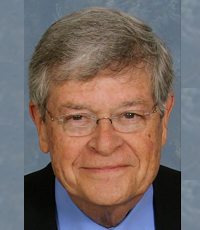
The Rev. Keith Tonkel. Photo courtesy of Wells Memorial United Methodist Church.
The Rev. Keith Tonkel
The Rev. Keith Tonkel, one of 28 white United Methodist ministers who signed a statement condemning segregation and racism in the Deep South in 1963, died March 8 in Jackson, Mississippi. He was 81.
Tonkel was pastor of the small Guinn Memorial Methodist Church in Gulfport, Mississippi, when he and 27 other young ministers signed the “Born of Conviction” statement against racism. It appeared in a Mississippi Methodist publication in January 1963, just three months after a mob rioted because of the court-ordered desegregation of the University of Mississippi.
For Tonkel, the swift backlash to the pastors’ statement included threats by phone and a man showing up at his house with a shotgun. But the pastor was determined to stay in Mississippi. In 1969, he became senior pastor of Wells Memorial United Methodist Church, where he was still serving when he died. Today, the multiethnic congregation in Jackson has more than 900 members.
“He was a unique person who embodied the slogan of this church of loving, caring, sharing,” said David Hampton, Wells Church pastoral assistant. “He was a giving, sensitive person, and he walked the walk.”
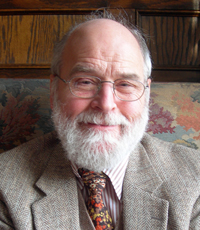
John C. Goodwin. Photo courtesy
of United Methodist Communications.
John C. Goodwin
John C. Goodwin worked for 20 years as a photojournalist for the United Methodist Board of Global Ministries and captured the scene at 10 United Methodist General Conferences. He died March 22 in Emerson, New Jersey, after a long illness.
Goodwin also photographed some of the best-known people of the 1960s, many of whom lent their celebrity to the peace movement. As part of that coverage, Goodwin captured much of the Rev. Martin Luther King Jr.’s last year.
As a photojournalist with Global Ministries, he traveled to more than 70 countries to cover mission work and missionaries.
Christie R. House, editor of Global Ministries’ magazine, New World Outlook, once asked Goodwin how he got his photo subjects to relax.
“He said, ‘Love them. You just have to love them,’” House recalled. “John, a goodwill ambassador as much as a professional photographer, developed and nurtured long-lasting friendships with people all around the world.”
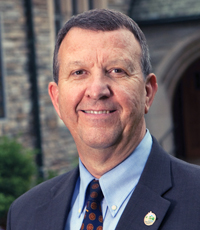
The Rev. Jimmy Carr. Photo
courtesy of Lake Junaluska Conference and Retreat Center.
The Rev. Jimmy Carr
The Rev. Jimmy Carr dedicated his ministry to bridging The United Methodist Church and the world. He died of heart failure March 17 in Jackson, Mississippi. He was 72.
As executive director, he helped connect Lake Junaluska Conference and Retreat Center in North Carolina with the broader community. As a gifted fundraiser, he worked to make Africa University in Zimbabwe a beacon of the Cross and Flame. As an agency executive, he helped create the Order of Deacons — United Methodist clergy charged with taking the church outside church walls. Carr himself became part of the first class of ordained deacons in 1997.
“The vision of the deacon is to be one who leads the church in servant ministry in the world, and Jimmy modeled that,” said the Rev. Jack Harnish, a longtime friend who worked with Carr when they were both executives at the United Methodist Board of Higher Education and Ministry.
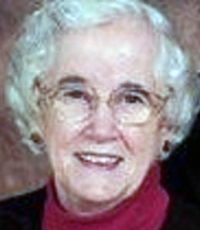
Gwendolyn H. White. Photo
courtesy of Concord Funeral Home.
Gwen White
Gwendolyn H. White, the wife of retired Bishop C. Dale White and a longtime retreat and spiritual director, died March 27. She was 92.
The Whites were married for 70 years. In 2015, Gwen White received the Lifetime of Discipleship Award by the Preachers’ Aid Society of New England.
Bishop Sudarshana Devadhar, who leads the New England Conference, said her witness of faith was both quiet and bold.
“Indeed, Gwen taught me what genuine Christian love, hospitality and grace are, how to live them, and to see the goodness of God in every person,” Devadhar wrote in a remembrance.
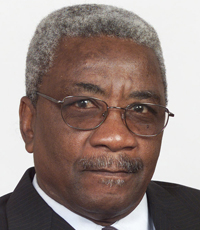
Bishop Moisés Domingos Fernandes. Photo by Mike DuBose, UMNS.
Bishop Moisés Domingos Fernandes
Bishop Moisés Domingos Fernandes led United Methodists in East Angola through some of the most brutal days of the country’s civil war and braved an attempt on his life. Throughout these ordeals, he remained committed to his nation’s people and his Christian faith.
The retired bishop died of cancer on April 6 in a hospital in Luanda, Angola’s capital. He was 78.
He was elected bishop in 1988. At one point, rebels trying to hunt the bishop down entered the episcopal residence. Fernandes escaped by jumping out a second-floor window, but broke both his legs. He spent more than a year of recovery in Portugal, then willingly returned to resume his duties as bishop.
“In the line of the sacrifice that bishops from Africa have to go through to fulfill their duties, one can say that Bishop Fernandes was a faithful man of God and a lead servant to his brothers and sisters in Angola,” said retired Bishop Emilio J. M. de Carvalho, who served in West Angola while Fernandes was in the east.
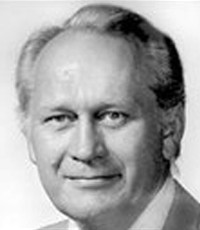
The Rev. Richard D. Nesmith.
Photo courtesy of Boston
University School of Theology.
The Rev. Richard D. Nesmith
The Rev. Richard D. Nesmith, a former civil rights activist and seminary dean, died March 1 in Framingham, Massachusetts. He was 88.
The United Methodist elder was dean and professor of Christian Social Ethics at the Boston University School of Theology from 1977 to 1988. He then served as a full-time professor until his retirement in 2001. As dean, he connected the school more deeply to The United Methodist Church and the ecumenical movement, hired several women faculty members and initiated programs on global Christianity and on evangelism.
Before coming to Boston, he served as a dean and professor at United Methodist-related MacMurray College in Jacksonville, Illinois, and later professor at United Methodist Saint Paul School of Theology in Kansas City, Missouri.
While at MacMurray, he landed in a Montgomery, Alabama, city jail in 1960 after bringing northern white students to meet with the city’s African-American leaders. He was convicted of “conduct calculated to provoke a breach of the peace.” He declined having the case dismissed without a fine and instead appealed. The U.S. Circuit Court of Appeals for the Fifth Circuit in 1963 reversed the conviction.
“Dean Richard Nesmith leaves a long legacy in church ministry, teaching and leading the Boston University School of Theology,” said the Rev. Mary Elizabeth Moore, dean and professor of theology and education at Boston University School of Theology.
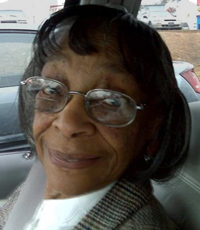
Thelma Newman. Photo courtesy
of Legacy. com.
Thelma Newman
When the late Bishop Ernest W. Newman became the first African-American bishop in the Southeastern U.S. in 1984, his wife, Thelma, was there beside him. Thelma Newman died May 3 in Atlanta. She was 94.
Before she married, she graduated from what is now United Methodist-related Clark Atlanta University and began a more than 30-year career as an educator. She retired from teaching after her husband became bishop. He led the Tennessee and Memphis Conferences until his retirement in 1992.
Newman was deeply involved in United Methodist Women. She also registered voters and served as a poll worker during elections. Retired Bishop Alfred Norris said each time he met Newman he would think of Isaiah 30:15 — “In quietness and confidence shall be your strength.”
“She didn’t make a lot of noise,” Norris said. “But everyone to whom she related experienced her quiet confidence and strength.”
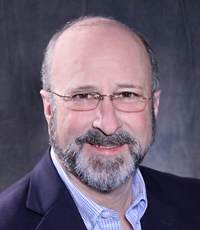
Ted Brown. Photo courtesy of the United Methodist Board of Higher Education and Ministry.
Ted Brown
Ted Brown, a leader of United Methodist education at various levels of the denomination, died May 20. He was 65.
In April, he had taken on the role of interim head of the Division of Higher Education at the United Methodist Board of Higher Education and Ministry. He previously served on the agency’s board for eight years. He also served as the president of the International Association of Methodist Schools, Colleges and Universities — whose members include more than 1,000 educational institutions in the Methodist tradition.
Most notably, the lifelong United Methodist was the 30th president of United Methodist-related Martin Methodist College in Pulaski, Tennessee, from 1998 until his retirement in January.
“Dr. Ted Brown was a giant in Methodist-related higher education,” said the Rev. Gerald D. Lord, former head of the Division of Higher Education at the denomination’s Higher Education and Ministry agency.
“Not only did he save and completely turn around Martin Methodist College during his long presidential tenure there, but he had considerable influence internationally as president of the International Association of Methodist Schools, Colleges and Universities for six years — starting, among other projects, an international exchange student scholarship program.”
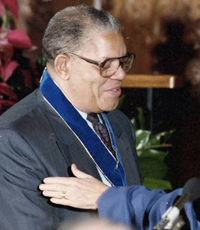
Samuel DuBois Cook. Photo by
Duke Photography.
Samuel DuBois Cook
Samuel DuBois Cook, the first African-American faculty member at United Methodist-related Duke University, died May 29 at his home in Atlanta. He was 88. When he arrived at Duke in 1966, he was the first tenure-track African-American professor appointed by a predominately white university in the South since Reconstruction.
In 1973, he also became the first black president of the Southern Political Science Association. Cook went on to serve 22 years as president of Dillard University, one of the historically black colleges supported by The United Methodist Church’s Black College Fund. His legacy also includes the Samuel DuBois Cook Center on Social Equity at Duke.
“A scholar of political science who was intimately involved with the leadership of the civil rights movement, he was the bearer of the vision of the beloved community and, throughout his life, worked for a society based on inclusion, reconciliation and mutual respect for all,” said Duke President Richard H. Brodhead.
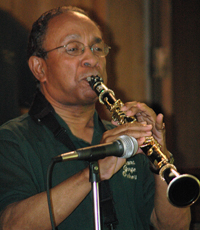
Booker T. Scruggs II. Photo
courtesy of the Holston Conference.
Booker T. Scruggs II
Booker T. Scruggs II, a renowned educator and gospel musician, loved music and mentoring generations of young people.
The clarinetist and saxophonist donated proceeds from his CDs and concerts to the youth ministry at his beloved Bethlehem-Wiley United Methodist Church in Chattanooga, Tennessee.
For 36 years, he also directed the Upward Bound program at the University of Tennessee in Chattanooga — helping low-income students prepare for college. He was still teaching sociology at the university when he died.
He was his church’s resident musician, playing the worship prelude almost every Sunday. He died June 5 after falling ill during a Sunday afternoon concert at St. Luke United Methodist Church in Chattanooga. He was 74.
“Booker will always be missed,” the Rev. Willie Kitchens, Bethlehem-Wiley pastor, told the Holston Conference’s The Call. “He was a humble spirit and a man of God.”
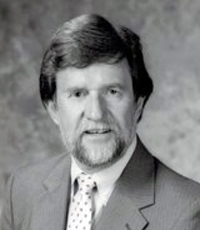
The Rev. Eugene Winkler. Photo courtesy of Jim Winkler.
The Rev. Eugene Winkler
In downtown Chicago, a street in front of the 30-story-tall building housing the First United Methodist Church at the Chicago Temple is named Eugene H. Winkler Way.
The Rev. Eugene Winkler — who was a United Methodist pastor for more than 60 years, many of them at Chicago Temple — died June 16 at age 83. He was a founder of Protestants for the Common Good and served on the Illinois Gaming Board and the Illinois chapter of the American Civil Liberties Union. He also was on the boards of Wiley College, Garrett Evangelical Theological Seminary and other organizations.
“He was a fearless advocate for social justice,” wrote son Jim Winkler, top executive of the National Council of Churches.
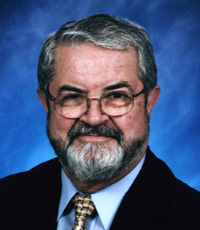
The Rev. Oscar Bolioli. Photo by Maile Bradfield, UMNS.
The Rev. Oscar Bolioli
The Rev. Oscar Bolioli, 83, a prominent Uruguayan Methodist leader and former staff member of the U.S. National Council of Churches, died June 18 in his native country after an illness.
He presided over the Methodist Church in Uruguay in 1975-1979, 2002-2008 and 2012-2016. During his term as president, the Latin American nation was ruled by a series of dictators. Bolioli helped people in peril flee the country and distributed aid to the relatives of political prisoners.
“His struggle for human rights and his untiring work for ecumenical relations are testimony to a life dedicated to the Gospel, to others and to life,” said the Rev. Luis de Souza Cardoso, leader of the Buenos Aires regional office of the United Methodist Board of Global Ministries.
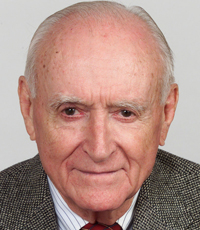
Bishop John Wesley Hardt. Photo
by Mike DuBose, UMNS.
Bishop John Wesley Hardt
Bishop John Wesley Hardt was, as his name suggests, a cradle Methodist who would have a long, profound influence as pastor, episcopal leader and bishop-in-residence at Southern Methodist University’s Perkins School of Theology.
Hardt died June 18 in Dallas at age 95. He was elected bishop in 1980, and for the next eight years he oversaw the Oklahoma Conference and Oklahoma Indian Missionary Conference. Before going there from his native Texas, Hardt acquired the last 10 years of journals for those conferences and memorized all the appointments and key statistics.
The Oklahoma conferences saw membership growth in some of Hardt’s years, bucking the denominational trend. He and his wife, Martha, were married for 73 years.
“He believed in sanctification and strove for it all his life,” said the Texas Conference’s Bishop Scott Jones. “He believed in evangelism and wanted each person to be saved.”
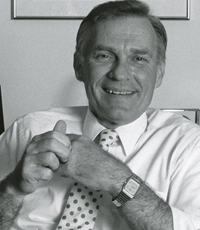
Paul Hardin III. Photo courtesy of Drew University Archives.
Paul Hardin III
Paul Hardin III served as president of three United Methodist-related colleges — Wofford College, Southern Methodist University and Drew University. He taught law at a fourth, Duke University.
Hardin, the son of a Methodist bishop, capped off his career as chancellor at the University of North Carolina-Chapel Hill. He held the title chancellor emeritus when he died at his Chapel Hill home on July 1, at 86. He had ALS or amyotrophic Lateral sclerosis, a progressive neurodegenerative disease also known as Lou Gehrig’s disease.
“He was a principled Christian leader who loved to build and innovate everywhere he served,” said retired United Methodist Bishop Will Willimon, a Wofford alumnus who teaches at Duke Divinity School.
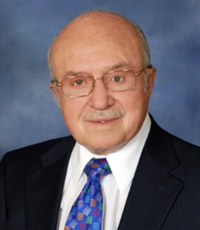
Judge Warren Keith Urbom. Photo courtesy of the Great Plains Conference.
Judge Warren Keith Urbom
As a U.S. federal judge, Warren Keith Urbom oversaw more than 100 cases against Native American activists and gained the respect of many Native Americans for fairness in his courtroom. The United Methodist died July 28 at age 91 in Lincoln, Nebraska.
Urbom was active in his home congregation of Trinity United Methodist Church in Lincoln, where he taught adult Sunday school since 1957. He was also a delegate of the former Nebraska Conference to six of the seven General Conference sessions from 1972 to 1996.
However, he is best known for his work in the cases that resulted from the Wounded Knee takeover in 1973. When several Native American observers refused to stand when he entered the courtroom, Urbom welcomed them to stay seated.
The Rev. Lovett Weems Jr., founding director of the Lewis Center for Church Leadership, cites Urbom as an example of someone who led by influence not control. “He saw power as an expandable sum,” Weems wrote. “The more willing he was to be influenced by others, the more likely they were to be influenced by him.”
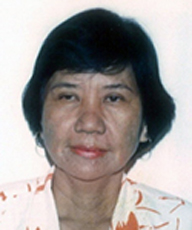
Angelina Nacpil. Photo courtesy
of the Council of Bishops.
Angelina Nacpil
Angelina Nacpil, whose husband served as residential bishop in the Philippines from 1980 to 2001, died Aug. 8 at age 87. She and retired Bishop Emerito Nacpil were married for 61 years.
Nacpil, the daughter of a United Methodist pastor and a deaconess, became a deaconess herself. She caught her future husband’s attention with her beautiful singing in the church choir. At the time, he was the church janitor studying to be a pastor. She took on the nomadic life of a pastor’s wife while taking various jobs to augment their income. Eventually, Nacpil retired as director of library services for Philippine Christian University in Manila.
“Service to the Lord became her life’s goal,” said retired Bishop Daniel C. Arichea. “As her daughter Cynthia put it to me, her mother repeatedly told them never to refuse anyone who came to them for help. She repeatedly demonstrated this in her life.”
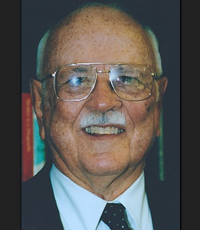
The Rev. John R. Knecht. Photo courtesy of Grandstaff-Hentgen Funeral Service.
The Rev. John R. Knecht
The Rev. John R. Knecht, former president of United Methodist United Theological Seminary in Dayton, Ohio, died Aug. 9 at age 96.
Ordained in the Evangelical United Brethren Church, Knecht served as a missionary in China, pastor and staff member with the denomination’s Board of Evangelism before leading the United Methodist seminary from 1965 to 1985.
While at United, he oversaw the development of the seminary’s Doctor of Ministry program and the establishment of the Center for Evangelical United Brethren Heritage. He and his wife, Marjorie, were married for 74 years.
“Because of his interest in international missions, he instituted the international student scholarship fund, which has provided scholarships for countless international students to receive their seminary education at United over the past 50 years,” said the Rev. Kent Millard, president of United.
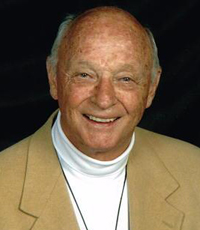
The Rev. Bill Barnes. Photo courtesy of Legacy.com.
The Rev. Bill Barnes
The Rev. Bill Barnes, an advocate for the poor and crusader for affordable housing, died Aug. 21 in Nashville, Tennessee. He was 86.
Barnes founded Edgehill United Methodist Church in 1966 as the city’s first intentionally integrated faith community. The church ministered to a cross-section of low-income and middle-class people. Its influence soon spread beyond its neighborhood. Dozens of nonprofits in the city now trace their roots to the congregation, including a music school, a soup kitchen, an interfaith advocacy group and a nonprofit that helps formerly incarcerated people enter the workforce.
The city’s affordable housing fund bears Barnes’ name. When he died, Nashville leaders — including the mayor — paid tribute to his spirit of service and activism.
“I think he's been that persistent voice, probably at times irritating voice to some, of the importance of equality and justice for all God’s children,” the Rev. John Feldhacker, Edgehill United Methodist’s current pastor, told the Tennessean.
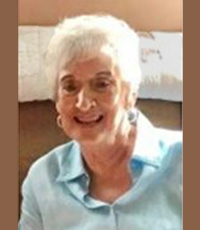
Dot Lee. Photo courtesy of the Clarion Ledger/Legacy.com.
Dorothy Lee
Dorothy “Dot” Ann Stricklin Lee, the wife of retired Bishop Clay F. Lee Jr., died Aug. 29 in Jackson, Mississippi, at age 85. She and her husband had been married 66 years.
The lifelong United Methodist met her future husband when the two were students at United Methodist-related Millsaps College in Jackson. She was a partner in her husband’s pastoral and episcopal ministry, including its challenges. During the civil rights movement, the Ku Klux Klan at one point burned a cross on their lawn.
The Lees were unbowed. When restaurants refused to serve visiting FBI agents, Dot Lee invited them to dinner.
“They always accepted — not surprising because she ranked among the world’s premier cooks,” said retired Bishop H. Hasbrouck Hughes Jr. “This charity was characteristic of her kindness throughout life. She could be counted upon to do the right thing. She had a special concern for people in trying circumstances.”
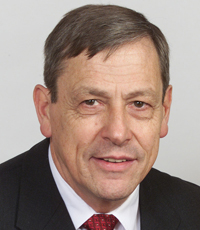
Bishop Rüdiger (Ruediger) R. Minor. Photo by Mike DuBose, UMNS.
Bishop Rüdiger (Ruediger) R. Minor
When Bishop Rüdiger (Ruediger) R. Minor became the first United Methodist bishop to reside in Moscow, he was uniquely qualified to head a mission to oversee the denomination’s fledgling congregations there and in other parts of the former Soviet Union.
As a child, one of his earliest memories was of the Russian Army taking up permanent residence in East Germany. Later, as an episcopal leader during a time of political transition and the reunification of Germany, he learned from Russian Christians, he said, about the need for a broader reconciliation and then promoted ecumenical cooperation during his tenure in Moscow.
The retired bishop died Sept. 3 in Dresden at age 78. He was diagnosed last year with ALS or amyotrophic lateral sclerosis.
“He was incredible in bridging the gap between east and west after the fall of the (Berlin) wall and the Iron Curtain,” said Thomas Kemper, a German native and top executive of the United Methodist Board of Global Ministries.
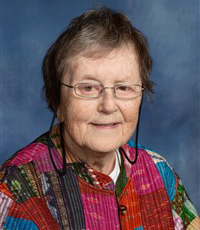
The Rev. Jeanne Audrey Powers. Photo courtesy of the Minnesota Conference.
The Rev. Jeanne Audrey Powers
The Rev. Jeanne Audrey Powers, a well-known ecumenist who was among the first women in the Methodist Church granted full clergy rights, died Sept. 29 in Switzerland while traveling with friends. She was 85.
Powers, ordained an elder in the Minnesota Conference in 1961, was a longtime staff member of The United Methodist Church’s ecumenical and interreligious arm. She also was the first woman nominated to be a United Methodist bishop, an honor she declined twice.
On the global level, she advocated for a more inclusive faith, seeking to open leadership opportunities to women, young people and individuals from many cultures. She also advocated for greater acceptance of LGBTQ individuals in all aspects of church life. In a landmark 1995 sermon, Powers came out as lesbian. She faced pressure to retire early but also support as well. Her alma mater, United Methodist Boston University School of Theology, honored her as a “Pioneer Woman.” Today, the Pacific School of Religion has a scholarship that bears her name.
“Friends and colleagues alike knew that Jeanne Audrey had little patience with small talk in both personal conversations and institutional ones,” the Rev. Bonnie Beckonchrist told Reconciling Ministries Network. “If she thought they descended into chit-chat, she would simply interrupt by saying: ‘Let me change the subject.’ Then Jeanne Audrey would take us deep. Not only did she have important insights, but she widened those conversations also. She’ll be forever missed.”
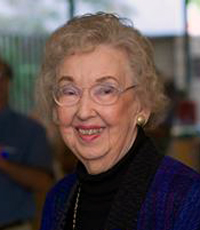
Maribeth Wilson Collins. Photo courtesy of Willamette University.
Maribeth Collins
Maribeth Wilson Collins was the matriarch of a family whose generosity helped make United Methodist global missions possible. She died Oct. 4 in Portland, Oregon, one month shy of her 99th birthday.
Collins and her family used their timber-harvest income to provide support to United Methodist missionaries, especially their health and retirement benefits.
After her husband Truman Wesley Collins’ death in 1964, she succeeded him as chair of the Collins Companies board, serving until 2005. She was continuing a tradition begun by her late father-in-law, Everell S. Collins, who willed timber income to a predecessor of Global Ministries.
“It is hard to imagine our missionary program today without the support of the Collins forest income,” said Roland Fernandes, Global Ministries’ chief operating officer and treasurer. “We would have far fewer missionaries past and present without the Collins forest support.”
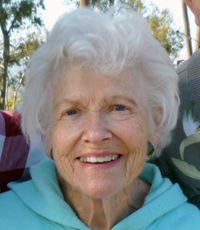
Lucile Wheatley. Photo courtesy
of the Wheatley family.
Lucile Wheatley
Lucile Wheatley, wife of the late Bishop Melvin Wheatley, died Nov. 23 in Escondido, California. She was 100.
Alongside her husband, she advocated for causes that were then unpopular. During World War II, she and her husband caused a stir when they moved into the Fresno, California, home of a Japanese-American family to protect it from vandals after the family was ordered into an internment camp. Later, she joined her husband in advocating for the full inclusion of LGBTQ Christians in church life. Her husband was bishop of what is now the Mountain Sky Area from 1972 to 1984, and he faced possible censure when he became the first episcopal leader to appoint an openly gay pastor.
The Rev. Donald E. Messer, a longtime friend and president emeritus of Iliff School of Theology, said he and his wife, Bonnie, loved “her vivacious spirit, intellectual acumen, courageous compassion, pithy comments and visionary outlook.”
“She and Bishop Wheatley were always light years ahead of others in terms of social justice and human equality,” Messer said.
News media contact: Heather Hahn at (615) 742-5470 or newsdesk@umcom.org.
Like what you're reading? Support the ministry of UM News! Your support ensures the latest denominational news, dynamic stories and informative articles will continue to connect our global community. Make a tax-deductible donation at ResourceUMC.org/GiveUMCom.

